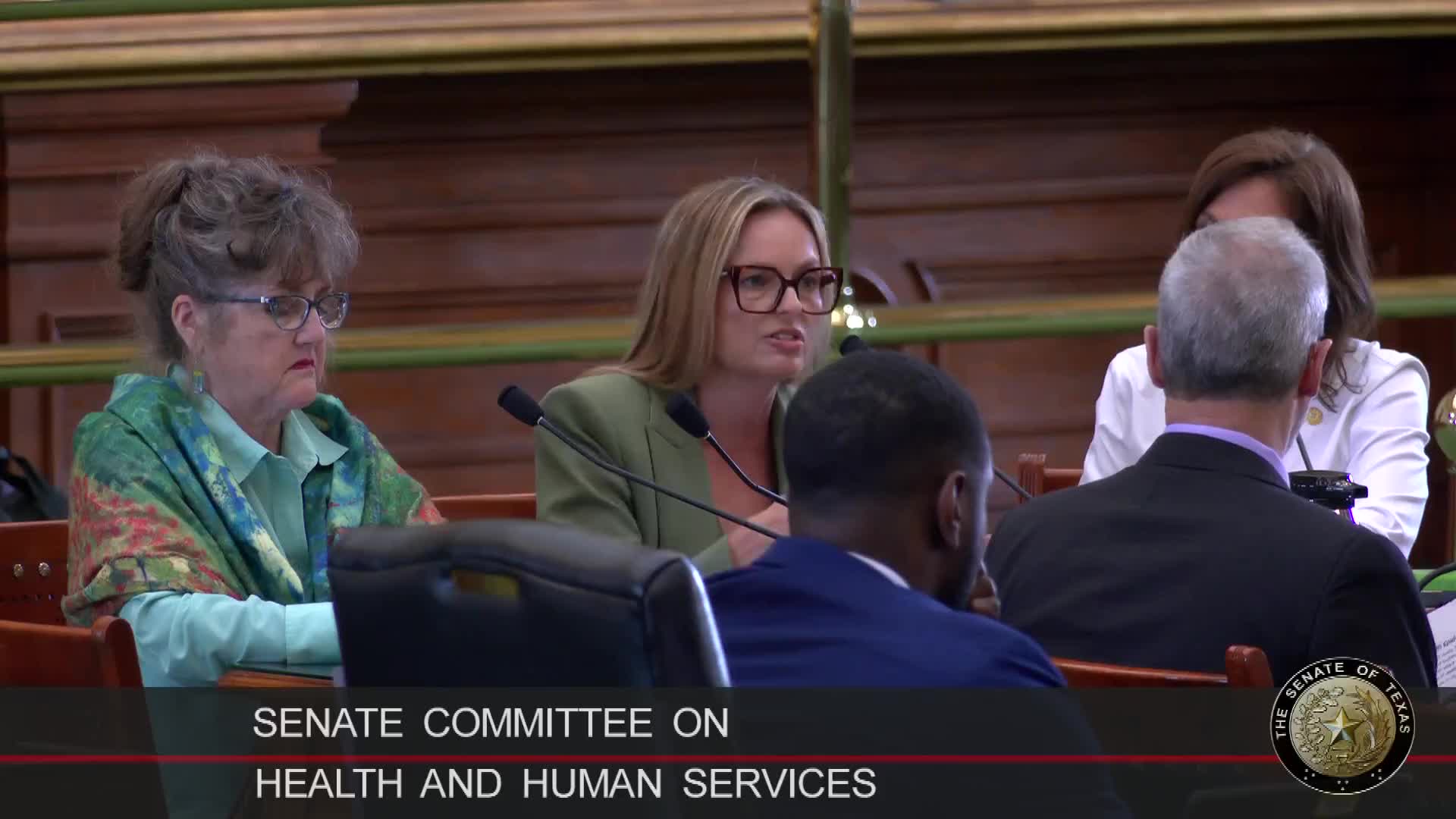Article not found
This article is no longer available. But don't worry—we've gathered other articles that discuss the same topic.
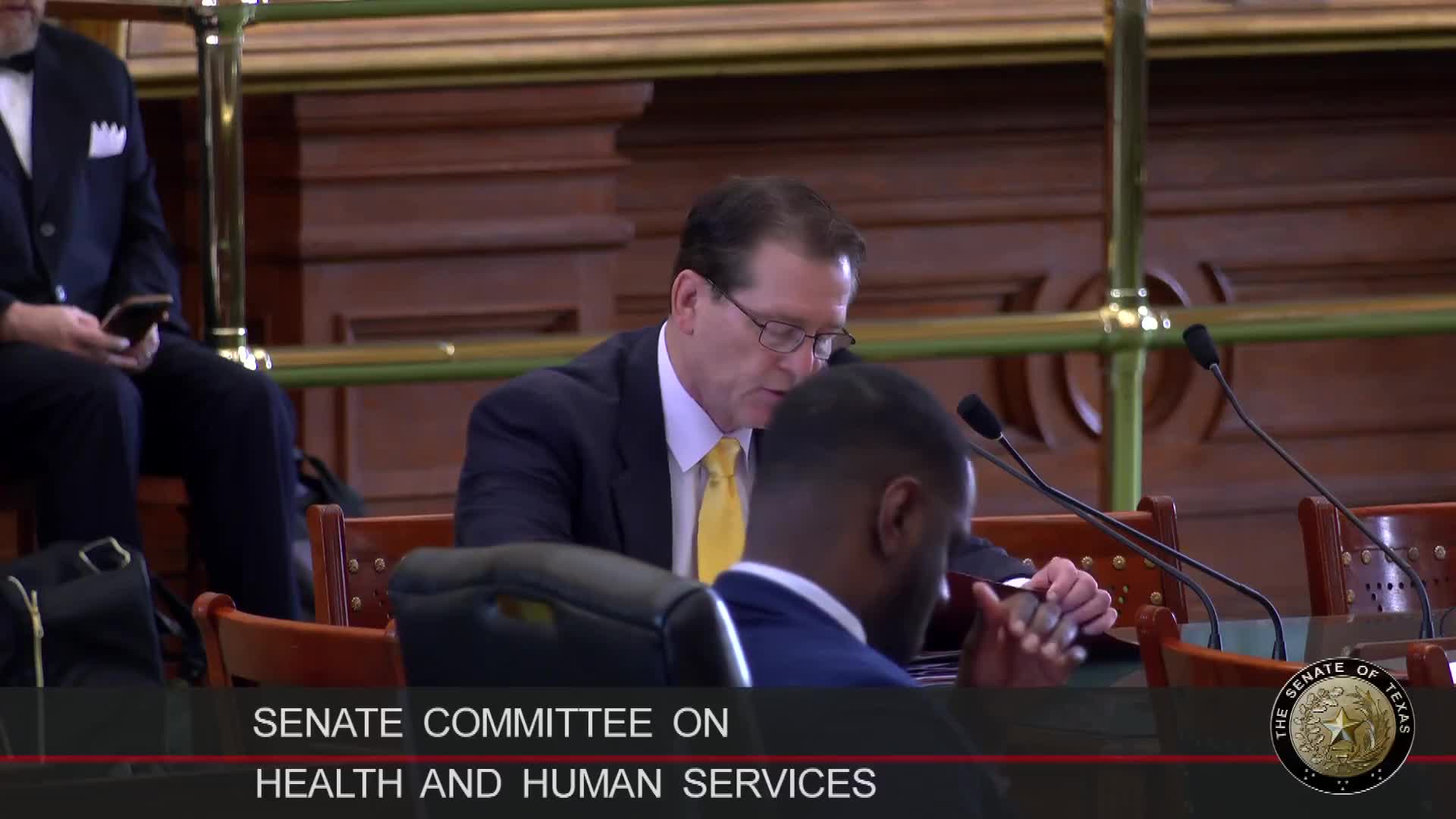
Senate substitute for bill would limit DFPS use of foster youths’ federal benefits and require alternate payees when possible
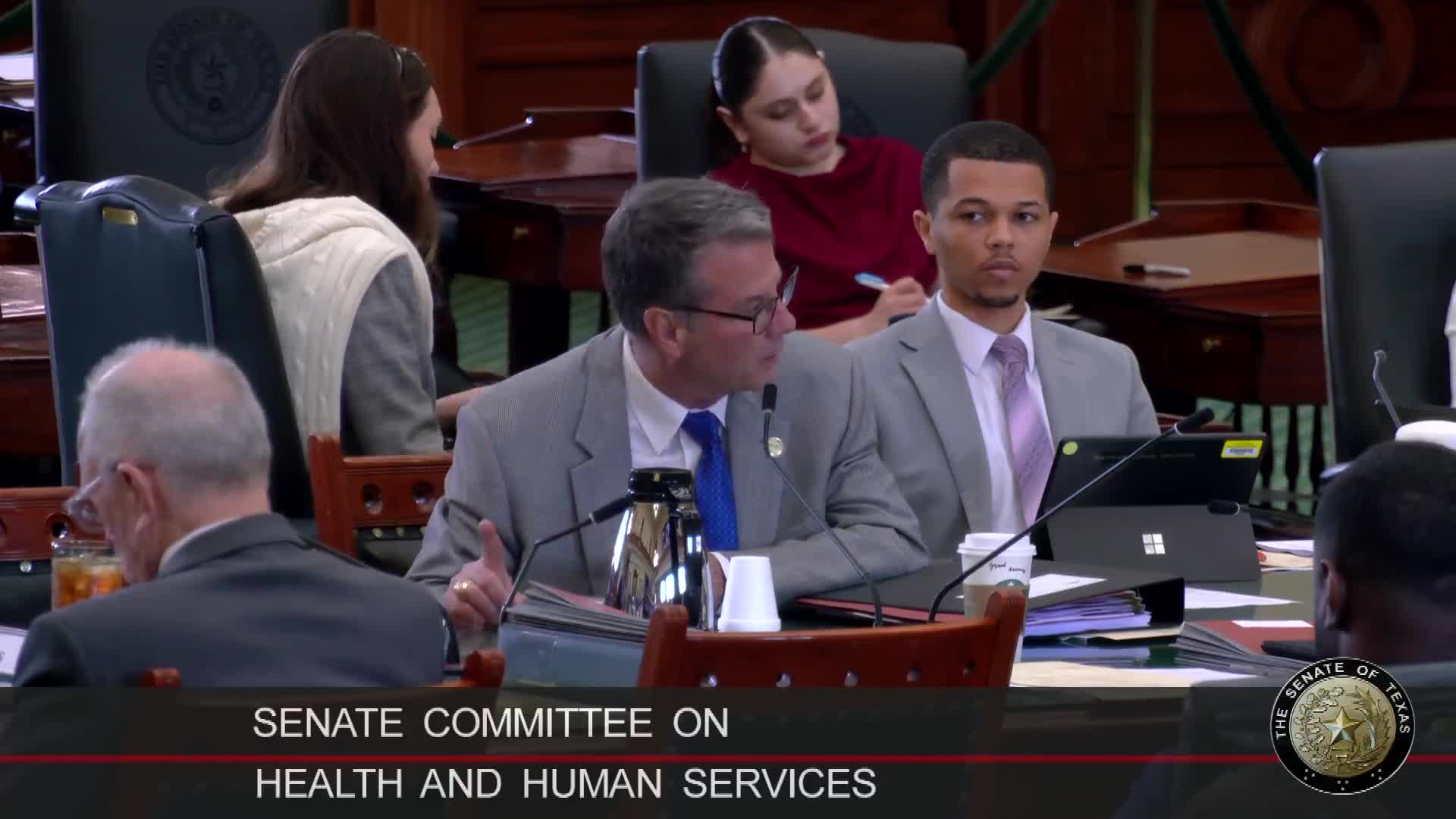
Committee hears bill to expand insurance coverage for advanced CT heart screening; insurers raise evidence and cost concerns
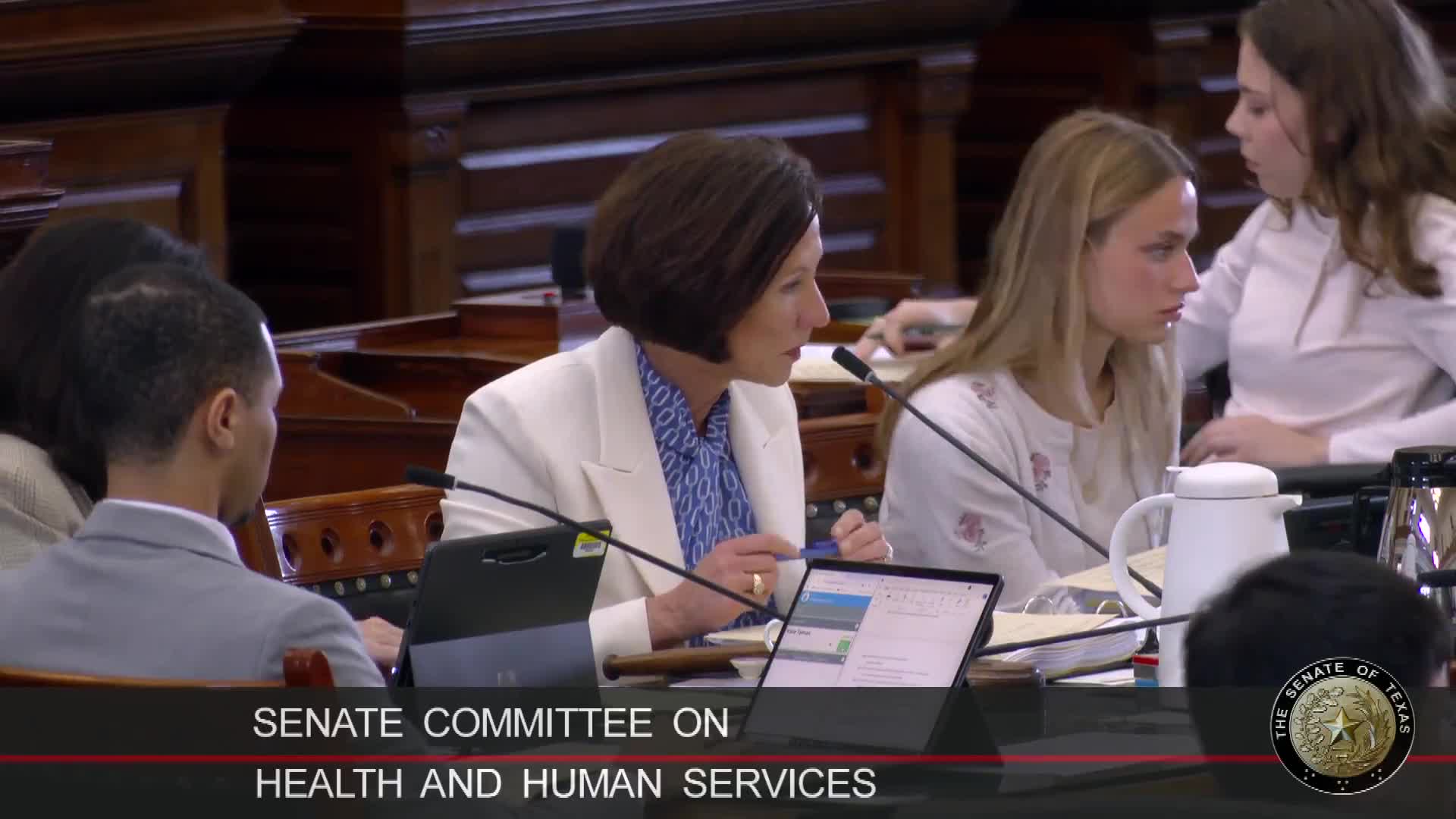
Committee hears bill to require bereavement training and bereavement devices for hospitals after stillbirths and neonatal deaths
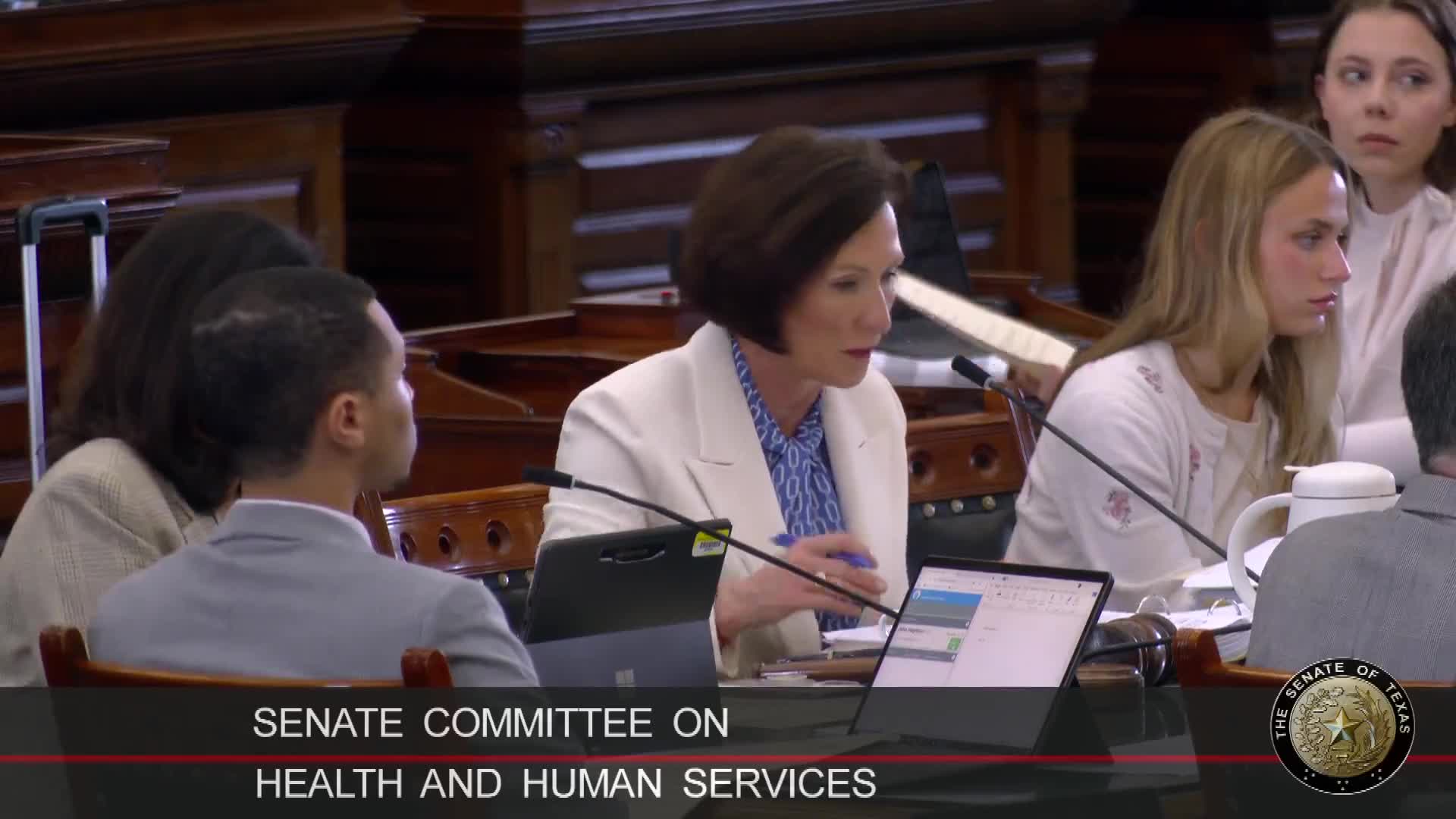
Senate committee hears bill to bolster rural hospitals with grants, training and Medicaid payment changes
